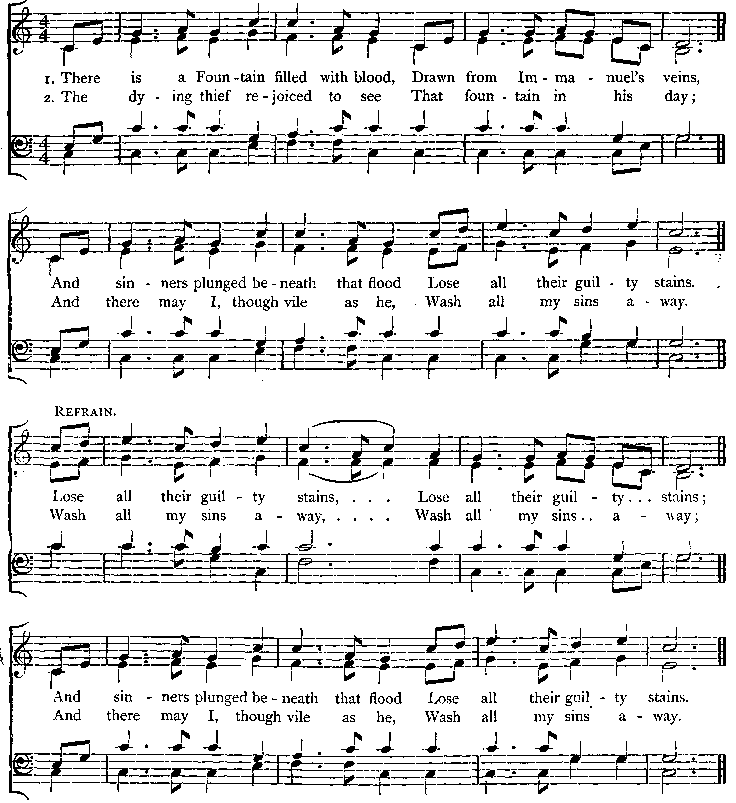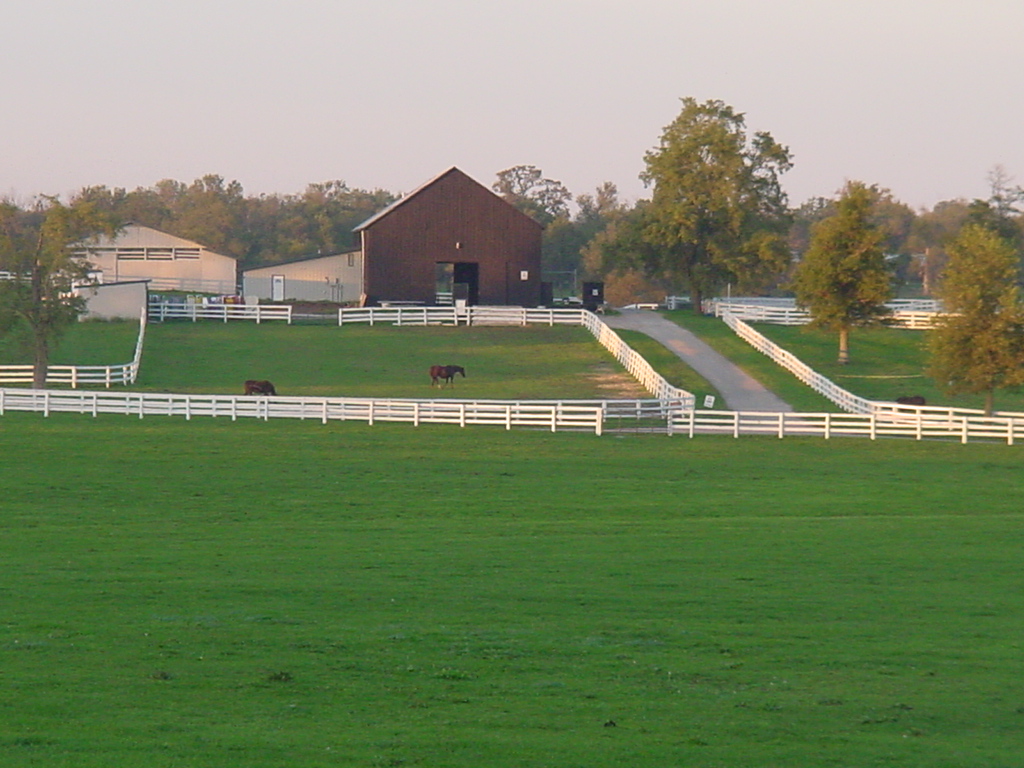
Thursday Hymn Reflection: “There Is a Fountain”
[NOTE: Each Thursday, we “reflect” on a hymn suggested by our readers. If you would like to add your favorites to our list, leave a comment with up to 3 suggestions.]
—————————
 Originally entitled “Praise for the Fountain Opened,” this great old hymn was written after a time of battle with depression by the famous English poet William Cowper (pronounced like “cup-er”).
Originally entitled “Praise for the Fountain Opened,” this great old hymn was written after a time of battle with depression by the famous English poet William Cowper (pronounced like “cup-er”).
Cowper suffered from very unstable emotions, and was a manic depressive. “There is a Fountain” was written in 1772, following his first major bout with depression, and that rise in stability and excitement finds its way into the beautiful lyrics of the song, especially in the words of verses no longer included in our hymnals.
In his book Then Sings My Soul, Robert Morgan tells us that Cowper lost his mother at the age of 6, and he never recovered from that loss. In fact, many years later, someone sent Cowper a picture of his mother, and the poet wrote these words:
My mother! when I learn’d that thou wast dead,
Say, wast thou conscious of the tears I shed?
Hover’d thy spirit o’er they sorrowing son,
Wretch even then, life’s journey just begun?
I heard the bell toll’d on thy burial day,
I saw the hearse that bore thee slow away,
And, turning from my nurs’ry window, drew
A long, long sigh, and wept a last adieu! (page 69)
It is thought that Romans 3:25, which Cowper felt was the verse that led him to belief in Christ, is also the foundation for his famous hymn. In that verse, Paul wrote, “whom God set forth as a propitiation by His blood, through faith.”
After coming to faith in Christ, Cowper continued to battle depression, but he continued to struggle with the help of friends and with the help of his faith. It would be several years before he had another major breakdown due to depression, and in that time, he wrote this hymn.
For many years, “There is a Fountain” has been used as an invitation song, and I have also heard it used prior to the Lord’s Supper. Both are appropriate uses for this very song that celebrates the continuing power of the blood of Jesus Christ.
It is also worth noting that the song mentions being “plunged beneath” the flood of the precious blood of Christ. While not a direct reference to immersion, it makes the point very well that we are to submit to the will of Jesus and be baptized in His blood.
My favorite line in the song is the last one that we usually sing: “Redeeming love has been my theme, and shall be ’til I die.” What better purpose statement could a Christian ever have than that? We must remain focused on the love of Christ for our lifetime! It should be our “theme.”
Most songbooks today contain either 3 or 4 verses, but Cowper originally wrote six to this poem. Here are all six original verses. Notice the movement in some of the verses to a life of joy, stemming from Cowper’s bouts with depression.
There is a fountain filled with blood drawn from Emmanuel’s veins;
And sinners plunged beneath that flood lose all their guilty stains.
Lose all their guilty stains, lose all their guilty stains;
And sinners plunged beneath that flood lose all their guilty stains.The dying thief rejoiced to see that fountain in his day;
And there have I, though vile as he, washed all my sins away.
Washed all my sins away, washed all my sins away;
And there have I, though vile as he, washed all my sins away.Dear dying Lamb, Thy precious blood shall never lose its power
Till all the ransomed church of God be saved, to sin no more.
Be saved, to sin no more, be saved, to sin no more;
Till all the ransomed church of God be saved, to sin no more.E’er since, by faith, I saw the stream Thy flowing wounds supply,
Redeeming love has been my theme, and shall be till I die.
And shall be till I die, and shall be till I die;
Redeeming love has been my theme, and shall be till I die.When this poor lisping, stammering tongue lies silent in the grave.
Then in a nobler, sweeter song, I’ll sing Thy power to save,
I’ll sing Thy power to save,I’ll sing Thy power to save,
Then in a nobler, sweeter song, I’ll sing Thy power to save,Lord, I believe Thou hast prepared, unworthy though I be,
For me a blood bought free reward, a golden harp for me!
’Tis strung and tuned for endless years, and formed by power divine,
To sound in God the Father’s ears no other name but Thine.
——————————-
As you share your reflections in the comments, enjoy this version of Cowper’s hymn, which includes a brief reading in the middle from the “suffering Servant” passage of Isaiah 53:





4 Comments
Heather
I found this really interesting! Thanks for posting this! Some of my favorite hymn’s are “Sing and Be Happy” and “Here We Are But Straying Pilgrims”. 🙂
Adam Faughn
Thanks, Heather! Those two songs are going on the list now. Look for them in coming weeks.
Pingback:
John Dale
One of the most fascinating stories to come out of the “Civil War” involves this song. Google: “Civil War Rapidan River There is a Fountain”. Blessings to you and yours! J. Dale